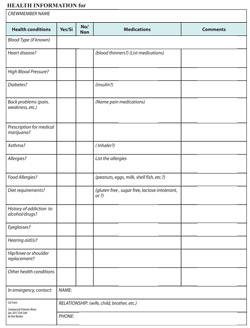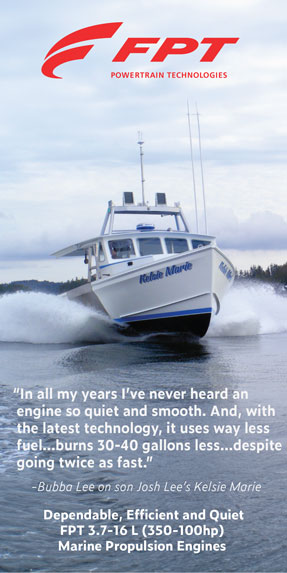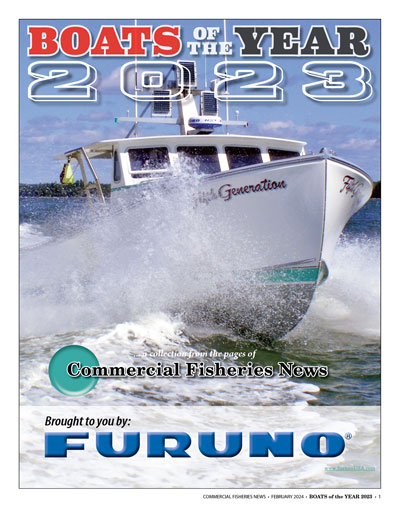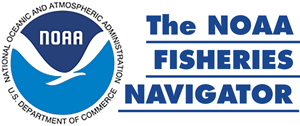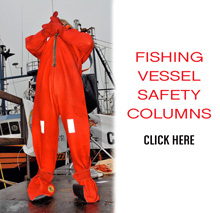The health information envelope
In the December issue of Commercial Fisheries News, SAFE BOAT-SMART BOAT columnist Fred Mattera explained several steps important to “safety on the job” aboard fishing vessels.
His comments were prefaced by the observation that many captains may currently be finding it difficult to gather a full experienced crew before heading out to fish.
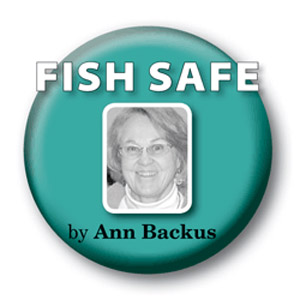
Ann Backus, MS, is the director of outreach for the Harvard School of Public Health’s Department of Environmental Health in Boston, MA. She may be reached by phone at (617) 432-3327 or by e-mail at <abackus@hsph.harvard.edu>.
Therefore, a person unfamiliar with fishing and the moods of the ocean, may end up crewing at the last minute.
This fisherman needs an orientation to the fishing process, the boat, the other crew, and – most importantly – to the safety and survival equipment on board.
He should also participate with other crewmembers in a fire or man overboard drill.
Health information envelope
This column will address the health side of “the job.”
For several years, we have advocated that captains collect from each crewmember a sealed envelope that contains his/her health information.
Then, in the event of a sudden illness or the need for a Mayday medic call and rescue, this envelope can be given to Coast Guard personnel during the rescue or airlift.
With respect to current practice, it appears that captains still typically do not request these confidential envelopes containing individual health information from the usual crewmembers, and crew members do not voluntarily provide them.
In the event of an incident, having health information from a newly signed-on crewmember whom no one knows might be the deciding factor in his survival.
So here’s a suggestion.
The captain or the person responsible for drill instruction should have, onboard, a collection of envelopes and paper.
While underway to fishing grounds, each crewmember should write his name and health information on the paper and place it in the envelope bearing his name which he then seals and hands to the captain for safe-keeping.
Crewmembers could write whatever they deemed important or could follow something like the table seen here that would be kept in the folder with the envelopes and paper.
If there are likely to be non-native speakers as crew, the table can translated into their language or a crewmember could translate it verbally.
In the event of a medical incident or evacuation, the captain would give the health information envelope to the rescuer/medic.
Fishing contract
For trips longer than one day, each crewmember should have a contract with the captain that specifies at least the expected length of the fishing trip, the role and responsibilities of the crewmember, the share split arrangement, and emergency contact information.
At the time of signing of the contract, the captain should inquire about dietary restrictions such as gluten-free or sugar-free, if the crewmember does not volunteer this information.
That this information is also collected in the health information envelope is not a redundancy, because emergency responders may need to know this information as well.
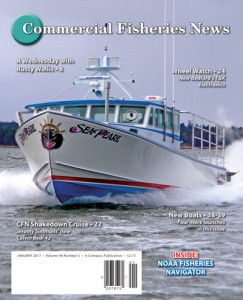
To get the rest of the January 2017 issue of Commercial Fisheries News, please choose from the following options:
• BUY a Single PRINT edition of CFN that is delivered by MAIL. PRINT EDITION
• Quickly enjoy ONLINE access with our Hi-DEF flip-book. PURCHASE ONLINE EDITION
(Read online flip-book immediately with purchased access key and download a copy for yourself to keep. Not sure if it works for you? Try a FREE SAMPLE HERE.)
• SAVE BIG when you SUBSCRIBE!


